Assistant Professor Political Science Exam 2020:
1. The power of the Supreme Court of India to decide disputes between the Centre and the States fall under its
(a) advisory jurisdiction
(b) appellate jurisdiction
(c) original jurisdiction
(d) constitutional jurisdiction
Ans: original jurisdiction (c)
2. The ‘Instrument of Instructions’ contained in the government of India Act 1935 have been incorporated in the
constitution of India in the year 1950 as
(a) Fundamental Rights
(b) Directive Principles of State Policy
(c) Extent of executive powers of state
(d) Conduct of business of the Government of India
Ans: Directive Principles of State Policy (c)
3. What will follow if a Money Bill is substantially amended by the Rajya Sabha?
(a) The Lok Sabha may still proceed with the bill, accepting or not accepting the recommendations of the Rajya sabha
(b) The Lok Sabha cannot consider the bill further
(c) The Lok sabha may send the Bill to the Rajya Sabha for reconsideration
(d) The President may call a joint sitting for passing the Bill
Ans: The Lok Sabha may still proceed with the bill, accepting or not accepting the recommendations of the Rajya sabha (a)
4. Constitutional safeguards to civil servants are ensured by
(a) Article 310
(b) Article 315
(c) Article 312
(d) Article 311
Ans: Article 311 (d)
5. Which one of the following is not correctly matched?
(a) Central Bureau of Investigation —–1963
(b) Special Police Establishment —– 1942
(c) Prevention of Corruption Act —– 1947
(d) Central Vigilance Commission —– 1964
Ans: Special Police Establishment —– 1942 (b)
6. Who said,”Political Science is both a positive and normative science which studies human behavior in its justice-seeking aspect”?
(a) Max Weber
(b) Seeley
(c) Gettell
(d) Garner
Ans: Max Weber (a)
7. The view that “State is the self-actualizing and self-realizing individual” was propounded by
(a) Kant
(b) Fichte
(c) Hegel
(d) Bosanquet
Ans: Hegel (c)
8. Isaiah Berlin held the view that
(a) Absence of coercion is the basis of liberty
(b) Liberty is a social requirement of social man
(c) Liberty is not the absence of restraints
(d) None of the above
Ans: Absence of coercion is the basis of liberty (a)
9. Socialist favors nationalization of natural resources with a view to
(a) ensure their full utilization
(b) avoid exploitation
(c) increase production
(d) reduce the cost of production
Ans: avoid exploitation (b)
10. Who said, “The means may be linked to a seed, the end to a tree, and there is just the same inviolable connection
between the means and the end as there is between the seed and the tree”?
(a) Karl Marx
(b) Mahatma Gandhi
(c) Lenin
(d) Engels
Ans: Mahatma Gandhi (b)
11. The first legislative Assembly of Goa, Daman and Diu met on
(a) 9th January 1964
(b) 5th February 1963
(c) 24th September 1964
(d) 9th October 1963
Ans: 9th January 1964 (a)
12. The philosopher who was the first to recognize every State as equal and independent with supreme jurisdiction over its boundaries was?
(a) Laski
(b) Grotius
(c) Austin
(d) Barker
Ans: Grotius (b)
13. Who said, “Revolution is a rapid, fundamental and violent domestic change in the dominant values and myths of a
society”?
(a) G.S.Petee
(b) Arendt
(c) Neumann
(d) Huntington
Ans: Huntington (d)
14. Under single transferable vote system, each voter can indicate
(a) as many preferences as there are candidates to be elected
(b) one preferences less than the seats
(c) only three preferences
(d) only four preferences
Ans: as many preferences as there are candidates to be elected (a)
15. The operation of soul force against all forms of injustice and oppression, refers to which of the following terms?
(a) Trusteeship
(b) Violence
(c) Non-Violence
(d) Satyagraha
Ans: Satyagraha (d)
16. The concept of Third world emerged as an answer to
(a) Behaviouralism
(b) Socialism
(c) Colonial politics
(d) Cold war politics
Ans: Cold war politics (d)
17. Who point out the three glaring defects of Indian bureaucracy namely – procrastination, yesmanship and corruption?
(a) Appleby
(b) Seckler Hudson
(c) A.D. Gorwala
(d) L.D White
Ans: A.D. Gorwala (c)
18. The Marxist theory of development was essentially
(a) Theory of State
(b) Political theory of alienation
(c) Socio-economic theory of human exploitation
(d) Combination of economic, sociological and political factors
Ans: Combination of economic, sociological and political factors (d)
19. Gandhiji in developing his idea was very much influenced by
(a) Aurobindo’s Life Divine
(b) Ruskin’s Unto the last
(c) M.N. Roy’s People’s Plan
(d) Jawaharlal Nehru’s Discovery of India
Ans: Ruskin’s Unto the last (b)
20. “The group is real in the same sense that the State is real.” This thought views the State as
(a) An instrument of oppression
(b) An association of association
(c) An objective spirit
(d) A supreme association
Ans: An association of association (b)
21. Who has written the book stages of Economic Growth: A Non-communist Manifesto?
(a) J.S Mill
(b) Talcott Parsons
(c) W.W. Rostow
(d) Karl Marx
Ans: W.W. Rostow (c)
22. Political development syndrome, in view of Behavioural theorist, does not include
(a) Capacity involving efficiency
(b) Homogeneity involving unity
(c) Equality involving popular rule
(d) Differentiation involving specialization
Ans: Equality involving popular rule (c)
23. ‘Education’ which was initially a state subject was transferred to the concurrent list by the
(a) 5th Amendment
(b) 9th Amendment
(c) 45th Amendment
(d) 42nd Amendment
Ans: 42nd Amendment (d)
24. In 1920, Emil Borel developed an important theory of International Relation. Which one of the following is that?
(a) The system theory
(b) The Decision making theory
(c) The Game theory
(d) The Realist theory
Ans: The Game theory (d)
25. Which period is known as ‘detente’?
(a) from 1979 to 1989
(b) from 1969 to 1979
(c) from 1959 to 1969
(d) from 1949 to 1959
Ans: from 1969 to 1979 (b)
26. According to Genmino, the main cause of the decline of political theory in modern times is
(a) Lack of positivism
(b) Lack of influence of intellectual force on political theorists
(c) Lack of learning from science by modern political theorists
(d) Lack of ideology or political doctrines
Ans: Lack of ideology or political doctrines (d)
27. Who is generally regarded as the father of Positivism?
(a) David Easton
(b) August Comte
(c) Max Weber
(d) Alfred Cobban
Ans: August Comte (b)
28. In the economic sphere, the liberal thinkers advocated
(a) Limited production
(b) State regulation
(c) Laissez Faire
(d) System of monopolies
Ans: Laissez Faire (c)
29. Who expounded modern individualism?
(a) Hegel
(b) Leacock
(c) Laski
(d) Graham Wallas
Ans: Graham Wallas (d)
30. Rawls theory of justice was essentially
(a) Economic justice
(b) Distributive justice
(c) Retributive justice
(d) Utilitarian justice
Ans: Distributive justice (b)
31. The statement that “A man without society is either a beast or a God” is attributed to
(a) Hegel
(b) Hobbes
(c) Aristotle
(d) Plato
Ans: Aristotle (c)
32. Who is known as the ‘high priest of sovereignty’?
(a) J.S Mill
(b) Austin
(c) Bodin
(d) Rousseau
Ans: Rousseau (d)
33. Socialism came into existence as a reaction against some factors. Which of the following is one of them?
(a) Utilitarianism
(b) Growing power of the State
(c) Extreme individualism
(d) Statism
Ans: Extreme individualism (c)
34. Who gave the concept of ‘ Political Decay’ that says institution decay and dissolve as well as grow and mature?
(a) Huntington
(b) Ricardo
(c) Adam smith
(d) Organski
Ans: Huntington (a)
35. Whom did the Constituent Assembly elect as its permanent chairman?
(a) Jawaharlal Nehru
(b) Rajendra Prasad
(c) B.R. Ambedkar
(d) M. Munshi
Ans: Rajendra Prasad (b)
36. Which Parliamentary committee is known as the ‘Ombudsman’?
(a) Petition Committee
(b) Public Account Committee
(c) Committee on Subordinate Legislation
(d) Estimate committee
Ans: Petition Committee (a)
37. The states are represented in the Rajya Sabha
(a) On the basis of equality
(b) In proportion to the territory of the state
(c) In proportion to the state’s population
(d) In proportion to the members of the Legislature
Ans: In proportion to the state’s population (c)
38. The theory of basic structure of the constitution was propounded by the supreme court in the
(a) Golak Nath Case
(b) Keshavnanda Bharati Case
(c) Gopalan Vs. State of Madras Case
(d) None of the above.
Ans: Keshavnanda Bharati Case (b)
39. The main provision of the sixth schedule of the constitution of India deals with
(a) Reservation in government jobs
(b) Preservation of tribal lands
(c) Autonomy in administration in the tribal areas of north-east India
(d) Reservation in educational institution
Ans: Autonomy in administration in the tribal areas of north-east India (c)
40. Which one of the following is not emphasized by Minnowbrook Conference?
(a) Change
(b) Relevance
(c) Values
(d) Equality before law
Ans: Equality before law (d)
41. Henri Fayol listed fourteen principles of management. Which one of the following was not among them?
(a) Scalar chain
(b) Parity of authority and responsibility
(c) Mental Revolution
(d) Subordination of individual to general interest
Ans: Mental Revolution (c)
42. Which of the following is not a basis of decision-making organization?
(a) Authority
(b) Span of control
(c) Division of leadership
(d) Rules and procedures of the organization
Ans: Division of leadership (c)
43. Recruitment of personnel from within is called
(a) Recruitment by promotion
(b) Passive recruitment
(c) Direct recruitment
(d) Ordinary recruitment
Ans: Recruitment by promotion (a)
44. Qualifications for the members of a Panchayats is mentioned in Article
(a) 243 F
(b) 243 E
(c) 243 G
(d) 243 D
Ans: 243 F (a)
45. “International Politics is a struggle for Power” who has made this statement?
(a) Morton Kaplan
(b) Hans Morgenthau
(c) George Kennan
(d) Henry Kissinger
Ans: Henry Kissinger (d)
46. The most powerful agency for the formation of public opinion is
(a) Elections
(b) The Press
(c) Public meetings
(d) Political Parties
Ans: The Press (b)
47. Zero Hours in Parliament is
(a) The period before the Question hours begins
(b) The time allotted to the Parliament for lunch
(c) The period between the end of the Question Hour and beginning of a fresh proceeding
(d) When Parliament is on vacation
Ans: The period between the end of the Question Hour and beginning of a fresh proceeding (c)
48. Raja Rammohan Roy is regarded as the
(a) Bismarck of India
(b) Prophet of Indian nationalism
(c) Bangabandhu
(d) Father of Indian journalism
Ans: Prophet of Indian nationalism (b)
49. Lasswell and Kaplan are the author of the book
(a) Political Education
(b) Modern Political Analysis
(c) Science of Politics
(d) Power and Society
Ans: Power and Society (d)
50. The ‘Clash of Civilization’ is based on the belief that twenty-first century conflict will occur due to
(a) political
(b) economic
(c) ideological
(d) cultural
Ans: cultural (d)
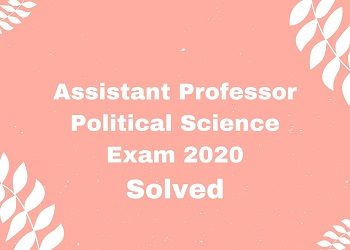
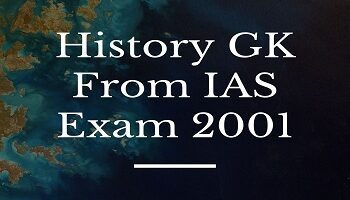
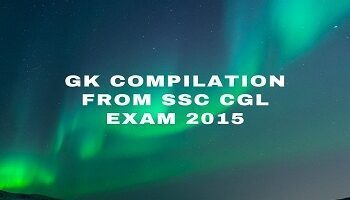
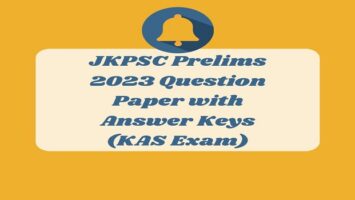
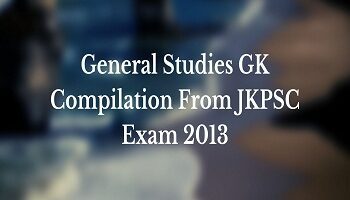
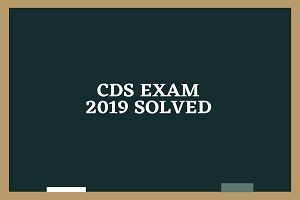
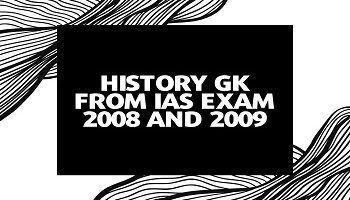
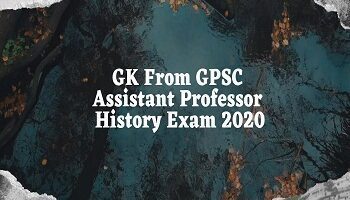
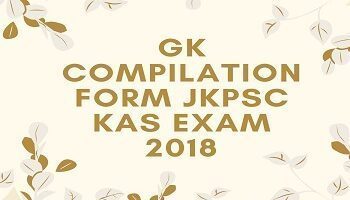
Comments (No)